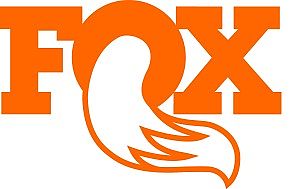Id leave Liverpools right-back position with Conor Bradley next season, Id only sign a back-up at left-back, Id still start Andy Robertson, even if they bought Milos Kerkez Former Anfield full-back has has say on clubs transfer business
DULUTH, Ga. (BRAIN) Fox Factory saw first-quarter year-over-year sales growth across its three divisions, including a 6.6% increase in sales in its Speciality Sports Group, which contains its bicycle and baseball/softball brands. Company-wide the growth exceeded estimates.
The company said the growth in the SSG group was related to bike-product sales, but warned that the industry is continuing to recalibrate inventory and consumer demand remains a concern.
The team was smiling; its been a while, CEO Mike Dennison said on an earnings call Thursday, referring to Foxs bicycle-product staff. But, he added later, its too early to call a victory lap.
Man, I don't want to get out over my skis, Dennison said. (For) too many quarters in the past, we thought we were there, I thought we were closing, and we weren't. So give us the benefit of the doubt to have a quarter or two in our pocket before we say, you know, we've won the game.
Sales in the SSG group totaled $121 million for the quarter, up from $113.5 million in the same quarter last year. Dennison said its Marucci baseball/softball business grew, as did its bike business, which is done through the Fox, Marzocchi, Easton, RaceFace and RideConcepts brands. The company does not provide separate performance figures for Marucci and the bike brands.
Foxs three divisions are SSG, the Powered Vehicles Group, and the Aftermarket Applications Group, which sells aftermarket products for powered vehicles including trucks. Aftermarket bicycle products are included in SSG.
Downplaying tariffs
On the call, the company said tariffs could add $50 million to its costs across all its divisions in this fiscal year. But the company said its taking steps to reduce those costs and can absorb them into its annual plan. Fox is sticking with its previously announced guidance for second-quarter and full-year sales and earnings per share.
Dennison said the tariff-mitigating steps Fox is taking would be "an hour-long conversation," but pointed to increased domestic production steps at its Georgia facility and shifting some production from China to Taiwan both steps involving Fox's non-bicycle products.
Foxs bicycle business appears more insulated from the tariffs than its other businesses, in part because some of its sales are to markets outside the U.S. Most Fox bicycle products are made in Taiwan and sold to Taiwanese bike factories who ship to the U.S. as well as Europe and other markets. Dennison noted on the call that one of Foxs biggest growing bike customers is a Chinese company he did not identify.
Expanding our relationships, even in China which is a difficult conversation right now, as you can imagine but expanding those relationships gives us diversity, he told investors on the call.
The company noted on the call that its aftermarket bicycle-product business in the U.S. has more exposure to tariffs than its OE business. But Dennison said Fox had built up an inventory of aftermarket products in the U.S. before the tariffs took effect. Asked if the first-quarter bike market sales were due to customers stocking up before tariffs took effect, Dennison said Fox didnt see much indication of that; he added that that could occur more in the second quarter.
Foxs other businesses are perhaps more vulnerable to tariffs. For example, the company currently makes aftermarket auto wheels and aluminum bats in China but it is moving at least some of that production to Taiwan.
Stock price drives impairment charge
Company-wide sales were up 6.5% in the quarter to $355 million. Cost of sales was $245 million, resulting in a gross profit of $110 million, up from $103 million in the first quarter last year.
However, Fox recorded a net loss of $260 million for the quarter because it took a $262 million goodwill impairment, a non-cash operating expense. Fox said the impairment was determined by an assessment triggered by adverse changes in U.S. tariff policies, new and expanded tariffs enacted by the current presidential administration, and resulting sustained decline in its stock price.
Foxs stock, traded on Nasdaq, closed at $21.35 a share Thursday. Its 52-week high of $53.39 was recorded July 31 and the price has been steadily falling since then.


